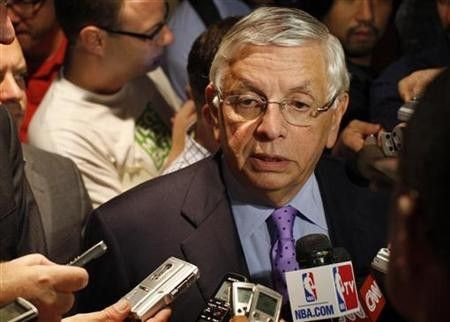Extra Day for Mediation Talks Between Owners and Players

Mediation talks between National Basketball Association (NBA) owners and players continued unexpectedly Wednesday for a second straight day in New York in a bid to resolve the bitter labor dispute.
The two sides met for 16 hours Tuesday with federal mediator George Cohen before resuming again barely eight hours later for an unscheduled session, NBA TV reported.
NBA owners had been set to hold board meetings Wednesday and Thursday but those were pushed back to allow members of the labor relations committee to continue talks with the players.
NBA Commissioner David Stern has identified the mediation talks as a potential make-or-break for the league, with the preseason and the first two weeks of the regular season already canceled because of the protracted lockout.
If there's a breakthrough, it's going to come (via mediation), Stern told NBA TV. And if not, I think that the season is really going to potentially escape from us, because we aren't making any progress.
The league locked out players on July 1 after the two sides failed to reach a new collective bargaining agreement.
Following an unsuccessful last-ditch effort to reach a deal, Stern canceled the first two weeks of the season, which was scheduled to begin November 1.
NBA owners contend the league lost $300 million last season with 22 of 30 teams in the red. They had wanted the league's share of basketball-related income increased from 50 to 57 percent, along with a firm salary cap and shorter contracts.
The players had offered to reduce their share from 57 to 53 percent.
We had a 57 percent deal. That's over, Stern said. And with that deal, we lost over a billion dollars and almost $300 million this past season. We're at 53 and they're at 47 and even at 50-50 it would be a very thin deal for the NBA.
We need a system that allows our teams to better compete, we need a system that allows small market and large market teams to tell their fans: 'We can compete if we're well managed'.
© Copyright Thomson Reuters {{Year}}. All rights reserved.





















